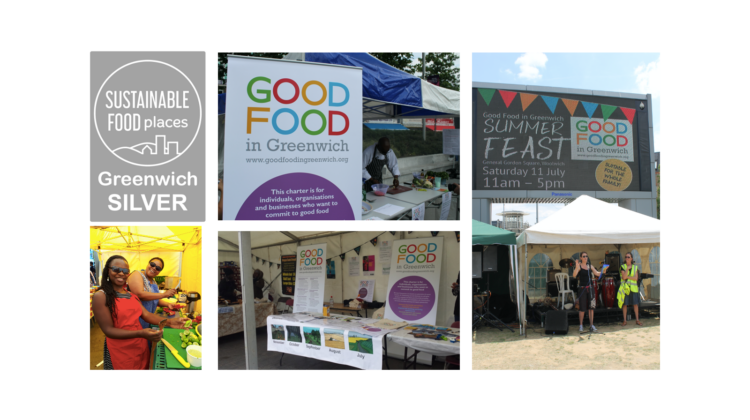Good Food in Greenwich (GFiG) is proud to announce that the borough has received the Sustainable Food Places silver award, recognising the borough-wide commitment to positive change across key sustainable food issues. GFiG has been working hard toward silver since receiving bronze back in 2016, and Greenwich has now joined five other locations in the UK to receive the prestigious award, making us one of only three this year.
Claire Pritchard from the Greenwich Cooperative Development Agency, said “Good Food in Greenwich (GFiG) is a network of communities, organisations and businesses that want to make Greenwich a borough where fair, healthy and affordable food is accessible to all. GFiG recognises that food provides us with the opportunity to address some of the most significant challenges facing our community including supporting good health, protecting our environment, celebrating our culture and community, creating learning and enterprise opportunities.
Cllr Denise Scott-McDonald, Royal Borough Greenwich Cabinet Member for Health and Adult Services, said “This Silver Sustainable Food Places award is a real achievement for Royal Greenwich and proof of the success of our partnership with Good Food in Greenwich. Reducing health inequality in Royal Greenwich is a priority for us and access to healthy, affordable, and sustainably produced food is central in tackling the worst public health issues in our borough. We have collaborated with Good Food in Greenwich on many of their projects to promote healthy, sustainable, locally sourced food and this is well-deserved recognition of their important work.”
Sustainable Food Places is a partnership programme led by the Soil Association, Food Matters and Sustain: The Alliance for Better Food and Farming. The programme brings together pioneering and innovative food partnerships from across the UK that are driving the innovation and best practice fair, healthy, affordable food.
Award decisions are made annually by a national panel of experts and are judged on progress across
six key issues:
• Taking a strategic and collaborative approach to good food governance and action
• Building public awareness, active food citizenship and a local good food movement
• Tackling food poverty, diet-related ill-health and access to affordable healthy food
• Creating a vibrant, prosperous and diverse sustainable food economy
• Transforming catering and procurement and revitalising local supply chains
